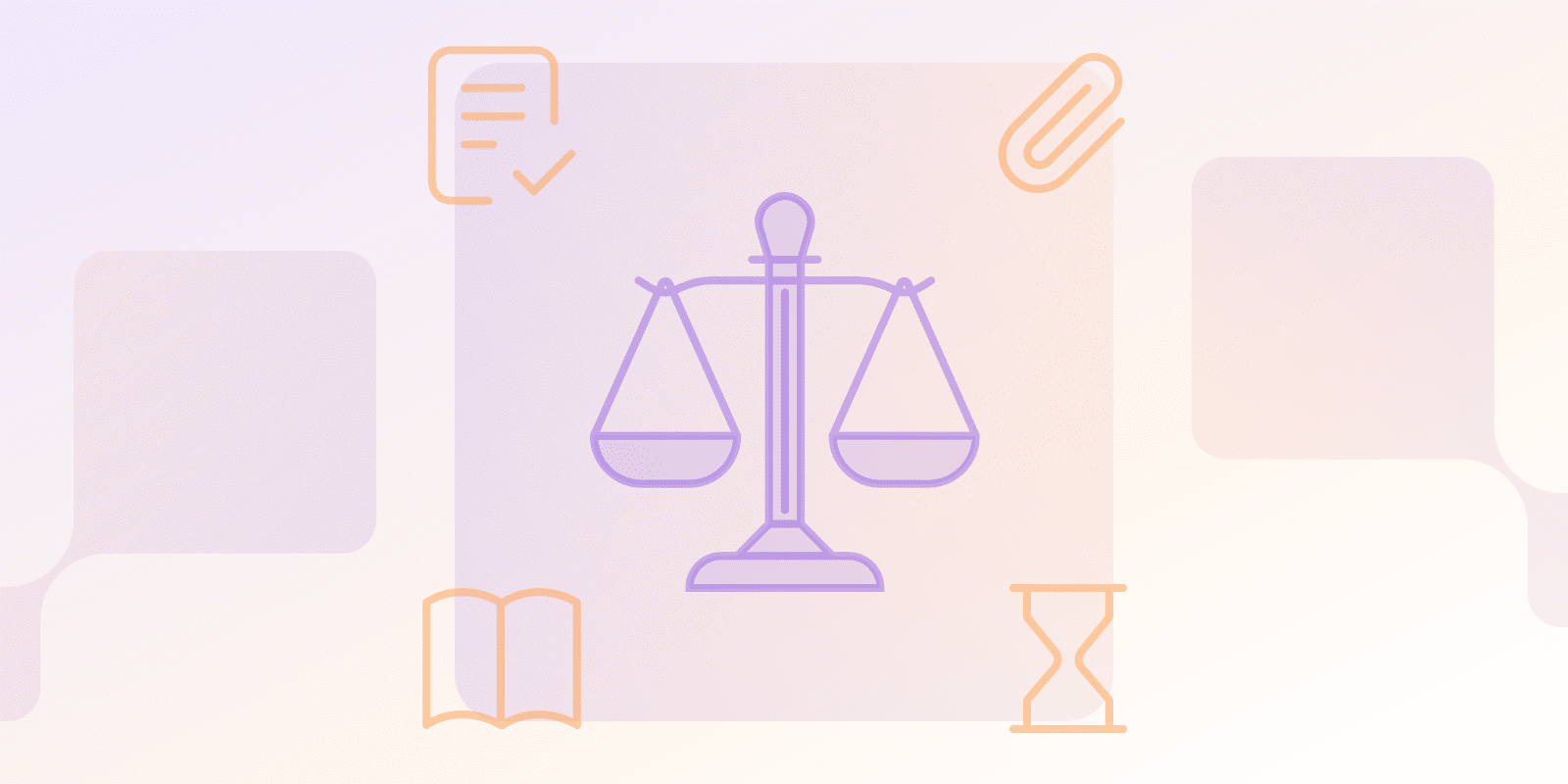Legal and Compliance
What is SaaS Legal and Compliance?

What is SaaS legal and compliance?
SaaS legal and compliance refers to the complete set of regulations SaaS (software-as-a-service) businesses should respect in order to sell their products and services.
This is an ever-evolving field as laws and regulations are constantly updated or new ones appear. SaaS businesses need to keep track of changes to remain compliant and avoid legal repercussions.
What is a data protection agreement (DPA)?
A Data Protection Agreement (DPA) is a formal contract that governs the handling of customer information between a third-party service provider in the capacity of data processor and a SaaS (software-as-a-service) company functioning as the data controller.
A DPA specifies each party’s precise roles and obligations while ensuring compliance with current laws like the GDPR.
To govern simple data processing agreements, however, a data processing clause contained in a more comprehensive Service Level Agreement (SLA) should be sufficient.
When creating or reviewing your DPA, work with a SaaS data protection attorney.
How do I ensure my SaaS is compliant with GDPR?
You must first comprehend the fundamental standards of GDPR, which include accurate data processing, accountability, transparency, and user rights, in order to make sure that your SaaS company complies with the law.
After you’ve mastered the fundamental GDPR principles, describe the ways in which your company gathers, keeps, and utilizes consumer data. Next, put in place all necessary security controls and safeguards that give users access to their data.
It’s critical to realize that obtaining GDPR compliance requires ongoing efforts. It is a continuous process that involves regular updates, reviews, and monitoring.
What are the key differences between SaaS and on-premise software from a legal perspective?
The following are the variations between SaaS and on-premise software from a legal standpoint:
- Data Control: The SaaS model gives the vendor more authority over how data is used, which comes with additional privacy and security responsibilities. However, with on-premise software, the user has greater control over their data and the associated compliance obligations.
- Authority: Because they are in charge of data security and privacy compliance, SaaS companies that want to grow globally must abide by a number of legislative frameworks.
- Management of Vendors: Strong client contracts, such as Terms of Service or DPAs, are necessary for SaaS companies as opposed to typical licensing agreements meant for on-premise software.
| Aspect | SaaS Model | On-Premise Software |
|---|---|---|
| Data Management | ||
| Data Control | Vendor has primary control over data handling | Customer maintains full control over data |
| Storage Location | Cloud-based servers managed by vendor | Local servers managed by customer |
| Compliance Requirements | ||
| Regulatory Frameworks | Must comply with multiple international regulations | Primarily follows local jurisdiction requirements |
| Privacy Compliance | Vendor bears primary responsibility | Customer manages compliance internally |
| Legal Documentation | ||
| Contract Type | Terms of Service and DPAs | Traditional licensing agreements |
| Data Processing Terms | Requires specific data processing agreements | Usually covered in standard license terms |
How can I protect my SaaS from intellectual property infringement?
To safeguard your SaaS intellectual property (IP) and enable technological breakthroughs, use patent securing. While copyrighting protects both your content and code, trademark registration is a good way to protect your brand.
Non-disclosure agreements (NDAs) are a common option for safeguarding private data and monitoring potential violations.
To find out if your IP is being used without authorization, think about utilizing the current web resources.
Should I consider a legal audit for my SaaS?
Legal audits are recommended for SaaS companies that handle sensitive client data, operate in regulated industries, or are thinking about expanding into new markets.
By conducting a legal audit, you can find any compliance gaps before they have an effect on your business operations and help you gain your customers’ trust.
When conducting a legal audit, it’s critical to work with attorneys who specialize in your sector.
Conclusion
Navigating the legal and compliance aspects of SaaS business is essential despite its complexity. In order to make sure that their companies are legally protected, entrepreneurs must not only comprehend the fundamentals of these activities but also seek professional advice.